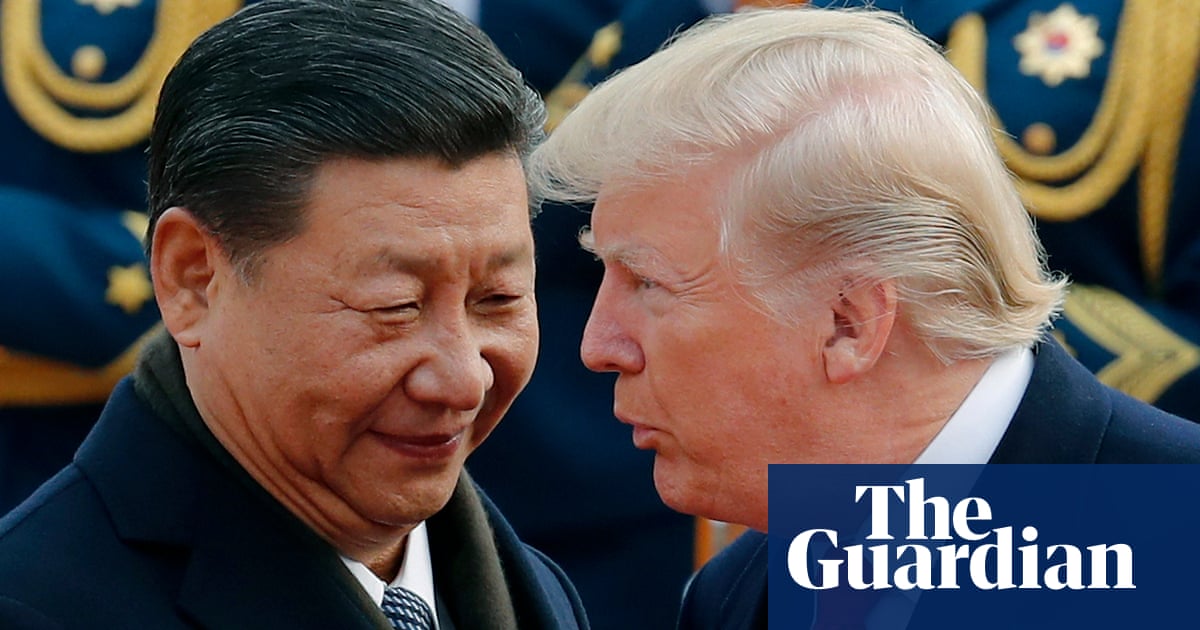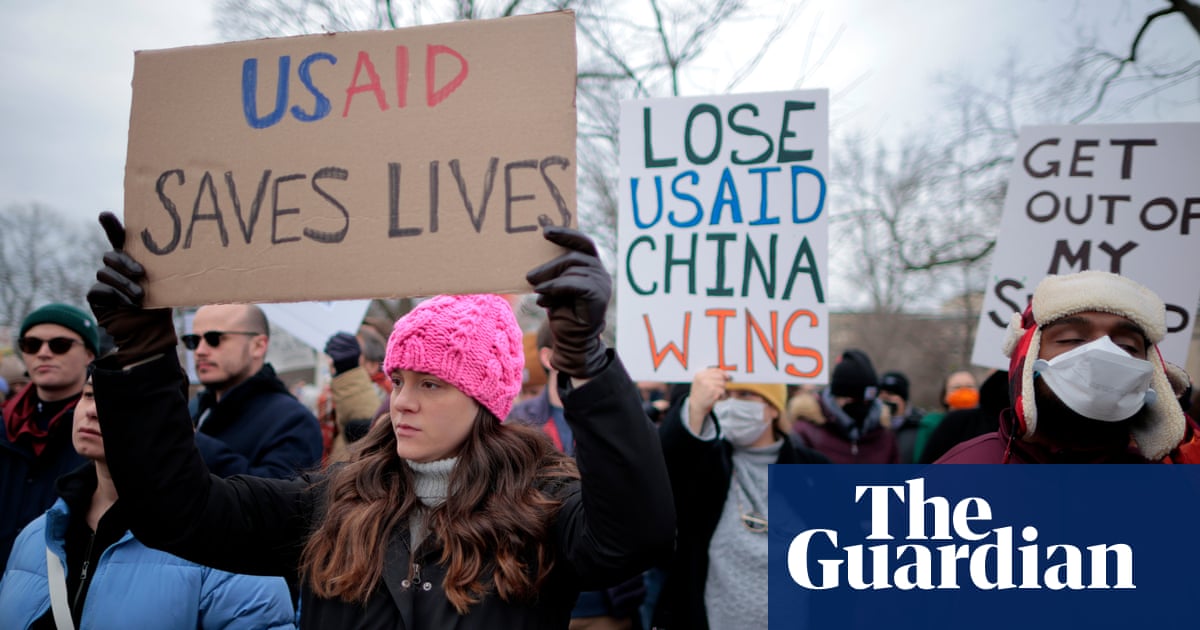Donald Trump’s shutdown of USAid has already had disastrous effects on humanitarian aid and development programmes around the world, but it has also ceded ground to the US’s chief rival, China, analysts have said.
The result of the sudden 90-day suspension of USAid funding – which accounts for 40% of global foreign aid – has been chaos: employees locked out of offices, humanitarian shipments left to rot, and lifesaving assistance stopped. Around the world, development programmes previously assisted by the USAid are panicking, warning of disastrous risks of escalating famine, death and disease.
Trump’s plan involves the merger of the more than 60-year-old USAid into the state department, shrinking its workforce and aligning its spending with Trump’s priorities. But analysts say it’s working against one key priority – countering China.
“[The US is handing] on a silver platter to China the perfect opportunity to expand its influence, at a time when China’s economy is not doing very well,” said professor Huang Yanzhong, senior fellow for global health at the Council on Foreign Relations.
“What Trump is doing is basically providing China a perfect opportunity to rethink, to renew soft power projects, and get back on track to transglobal leadership.”
More than one analyst described the shuttering of USAid as a “self-inflicted wound”.
Global dynamics have been dominated by the ongoing US-China competition and a key battlefront is in the development sector as Washington and its allies vie against Beijing for influence in the global south.
In 2018, the Chinese government created the standalone China International Development Cooperation Agency, or China Aid, to streamline China’s spending, including its foreign investment programme, the belt and road initiative (BRI). Beijing doesn’t disclose foreign aid budgets but a study by William & Mary’s Global Research Institute found China lent $1.34tn to developing nations between 2000 and 2021, mostly through the BRI. The new agency would “further the effectiveness of aid as a key foreign policy instrument”, according to a government press release at the time.
While China Aid operates differently to USAid, by focusing more on loans and highly visible infrastructure projects rather than partnering with local organisations, both agencies have similar objectives – spreading their respective government’s soft power and influence.
It’s particularly focused on the Pacific, where the US, Australia and other allies have been trying to counter China’s efforts to make security deals with the small but strategically located countries.
Melissa Conley Tyler, executive director of the Asia Pacific Development, Diplomacy and Defence Dialogue, told the Guardian she knows of at least one confirmed case in the region where China Aid has already stepped in to provide the funds pulled by USAid.
“The US and Europe, Canada, Australia, Japan, we have a strong interest in living in a world of liberal democracies and economies,” said George Ingram, a senior fellow at the Brookings Institution’s center for sustainable development and a former USAid official.
“China, like Russia, is trying to advance an authoritarian world. The total opposite of what our interests are.”
For now, any new China Aid support would be mostly rescuing programmes abandoned by USAid, like the example in the Pacific. But down the track that could change, Conley Tyler said.
“My biggest worry about China as a development actor is the way it often corrodes good governance and accountability in the country where it works. I don’t have a problem with any country being a development party … it’s a wonderful thing. But the way China does aid can have a sort of corrupting effect on that.”
There was now also likely to be greatly reduced bargaining power for recipient nations. With USAid gone, programmes which previously reaped the benefits of two superpowers competing to fund their projects might just have to take what they can get.
“They don’t have to significantly increase funding of the foreign aid levels in order to replace the US as leader in this field,” said Huang. “And … its narrative about international development, about how altruistic China is, becomes more convincing. So that also helps boost China’s soft power quickly.”
Conley Tyler said the impact of the USAid suspension is far worse than what’s being reported because many programme workers are hoping if they keep quiet, funding might be restored at the end of the 90 days.
But even if it is, broadly, the trust is gone.
“Who is going to allow themselves to become dependent on US assistance if it’s fickle, if it doesn’t distinguish between allies and adversaries, if it could just be turned off on a political whim?” she said.
Additional research by Jason Lu
Article by:Source: Helen Davidson and Amy Hawkins













